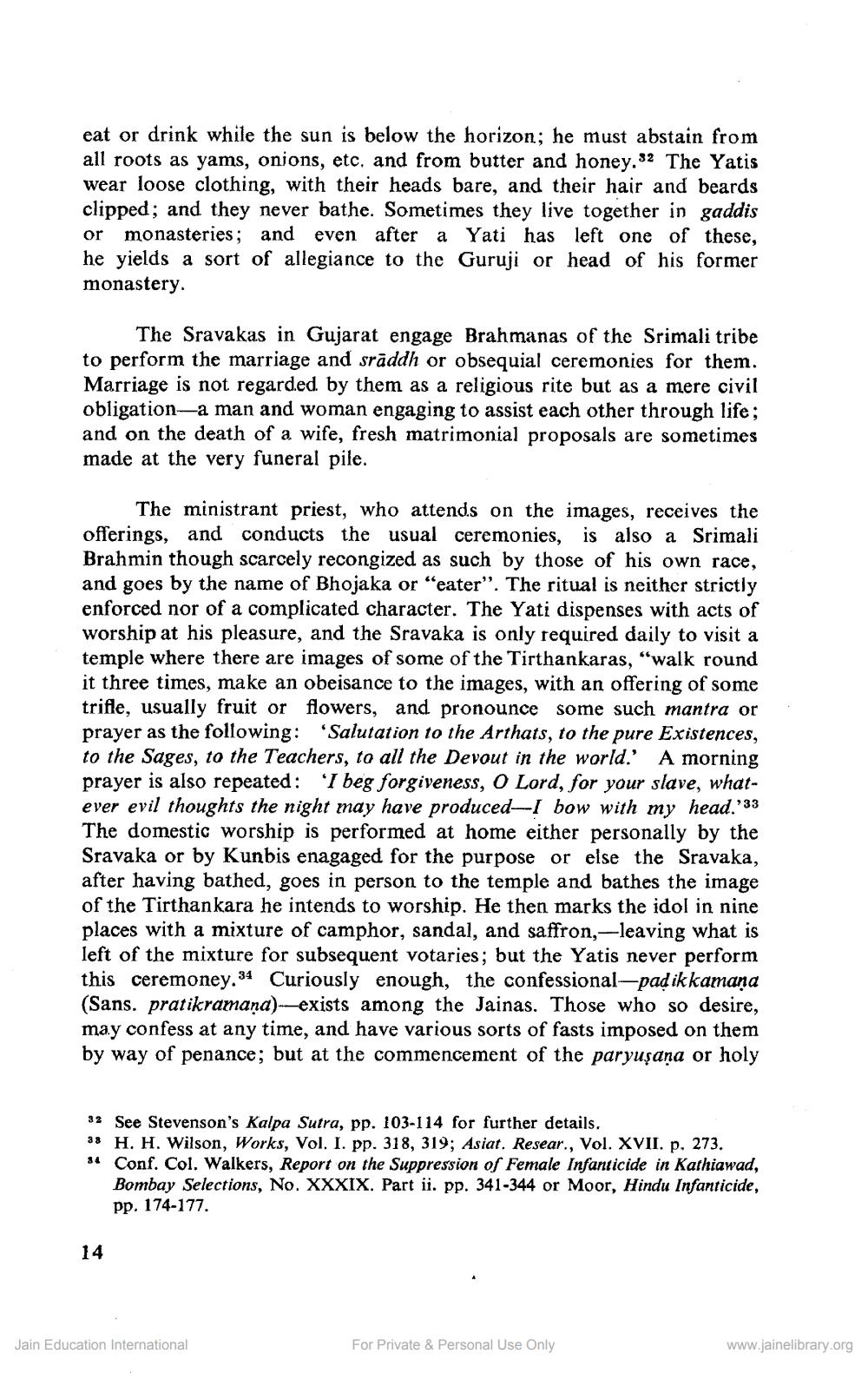________________
eat or drink while the sun is below the horizon; he must abstain from all roots as yams, onions, etc. and from butter and honey.32 The Yatis wear loose clothing, with their heads bare, and their hair and beards clipped; and they never bathe. Sometimes they live together in gaddis or monasteries; and even after a Yati has left one of these, he yields a sort of allegiance to the Guruji or head of his former monastery.
The Sravakas in Gujarat engage Brahmanas of the Srimali tribe to perform the marriage and sraddh or obsequial ceremonies for them. Marriage is not regarded by them as a religious rite but as a mere civil obligation a man and woman engaging to assist each other through life; and on the death of a wife, fresh matrimonial proposals are sometimes made at the very funeral pile.
The ministrant priest, who attends on the images, receives the offerings, and conducts the usual ceremonies, is also a Srimali Brahmin though scarcely recongized as such by those of his own race, and goes by the name of Bhojaka or "eater". The ritual is neither strictly enforced nor of a complicated character. The Yati dispenses with acts of worship at his pleasure, and the Sravaka is only required daily to visit a temple where there are images of some of the Tirthankaras, "walk round it three times, make an obeisance to the images, with an offering of some trifle, usually fruit or flowers, and pronounce some such mantra or prayer as the following: 'Salutation to the Arthats, to the pure Existences, to the Sages, to the Teachers, to all the Devout in the world.' A morning prayer is also repeated: 'I beg forgiveness, O Lord, for your slave, whatever evil thoughts the night may have produced-I bow with my head.'33 The domestic worship is performed at home either personally by the Sravaka or by Kunbis enagaged for the purpose or else the Sravaka, after having bathed, goes in person to the temple and bathes the image of the Tirthankara he intends to worship. He then marks the idol in nine places with a mixture of camphor, sandal, and saffron,-leaving what is left of the mixture for subsequent votaries; but the Yatis never perform this ceremoney." Curiously enough, the confessional-padikkamaṇa (Sans. pratikramaṇa)-exists among the Jainas. Those who so desire, may confess at any time, and have various sorts of fasts imposed on them by way of penance; but at the commencement of the paryuṣaṇa or holy
34
32 See Stevenson's Kalpa Sutra, pp. 103-114 for further details.
38 H. H. Wilson, Works, Vol. I. pp. 318, 319; Asiat. Resear., Vol. XVII. p. 273.
34 Conf. Col. Walkers, Report on the Suppression of Female Infanticide in Kathiawad, Bombay Selections, No. XXXIX. Part ii. pp. 341-344 or Moor, Hindu Infanticide, pp. 174-177.
14
Jain Education International
For Private & Personal Use Only
www.jainelibrary.org




